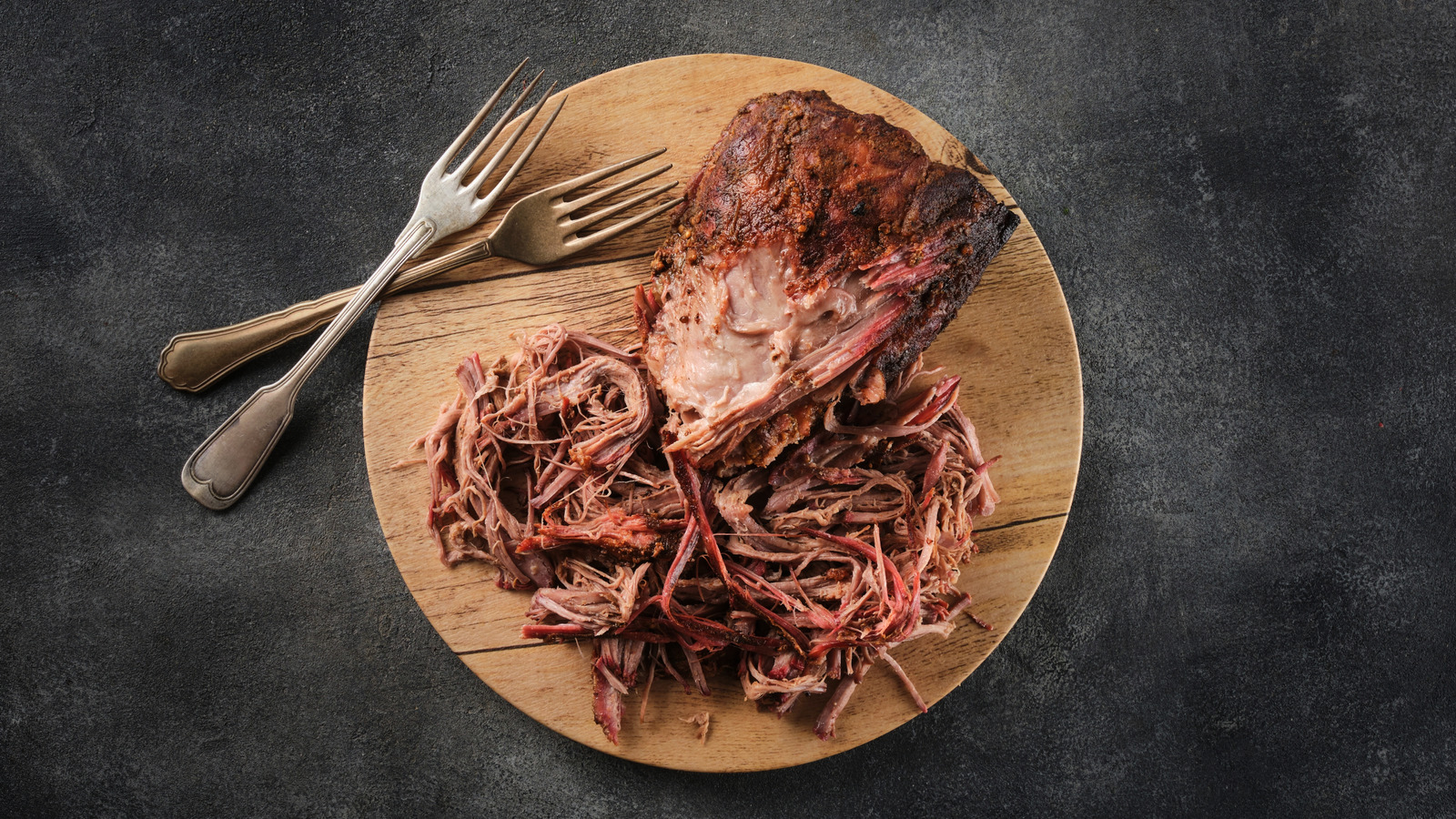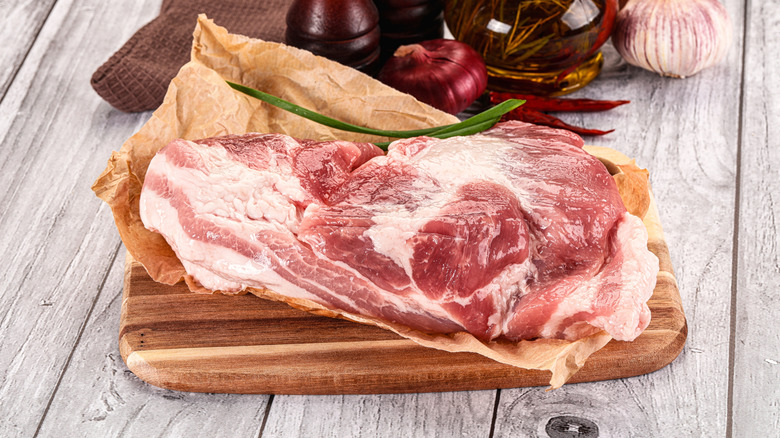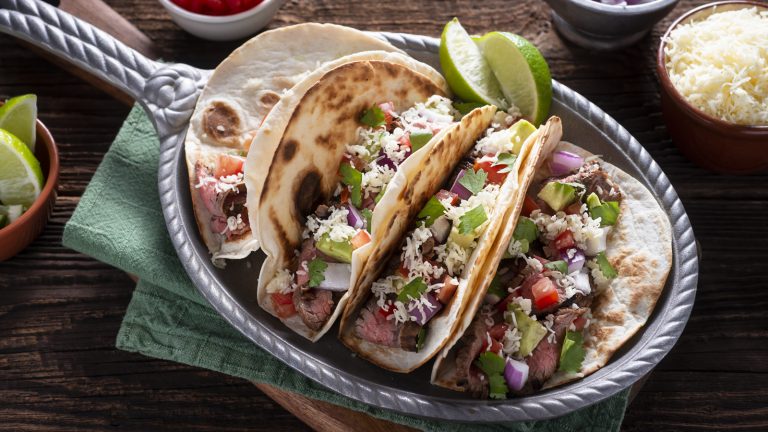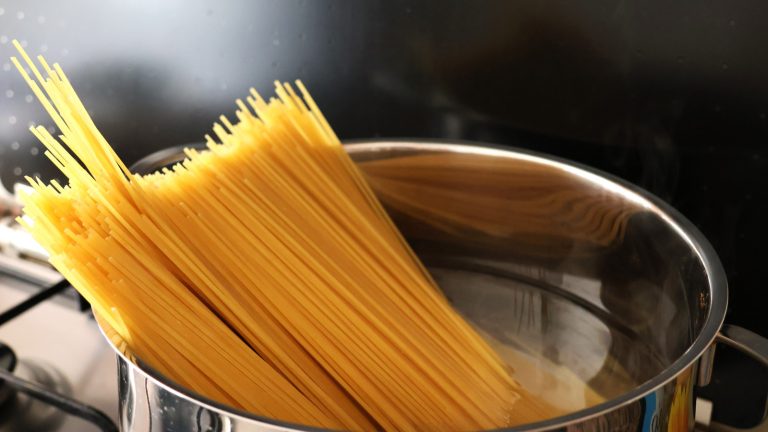Barbecue can be an intimidating world for beginners, full of strict rules and strong opinions, but some cuts of pork are a bit more forgiving. On the tough side of things, you have leaner meat like brisket and whole turkeys, which need a lot of precision to keep from getting dry. Then, on the easier side, you have ribs, which don’t have too high a degree of difficulty but can be pricey enough to scare away anyone just learning how to barbecue. Ideally you want that sweet spot of something that’s hard to mess up but cheap enough to be a small loss if you do. So, we reached out to an expert, Matt Abdoo, the executive chef and co-founder of Pig Beach BBQ, to ask what cut of meat he would recommend for barbecue beginners.
“In my humble opinion, I believe the best cut of pork for a barbecue beginner is the bone-in Boston Butt, also known as a bone-in pork shoulder,” Abdoo tells us. The chef explains that one big upside is that pork shoulder is very affordable, usually around two dollars per pound, and maybe even less. When it comes to cooking the meat, Abdoo explains that “it’s very forgiving, meaning that if you make a few errors or if it doesn’t come out perfectly, you can always chop it up, add BBQ sauce, make sandwiches, and have a party!” Any cut of meat where sauce-covered pulled pork is the “bad” outcome sounds like a good suggestion.
Pork shoulder is an easy way to start with barbecue
If you’re planning on grabbing a pork shoulder for your first barbecue, Abdoo offers a few tips that will make cooking even easier. According to the chef, the biggest thing to watch is temperature. “[The] key things to keep in mind when cooking any barbecue [are to] keep your temperature consistent and cook between 225 and 250 degrees,” Abdoo explains. This low heat allows meat to slowly come up to temperature, giving time for its fat and connective tissue to melt, tenderizing your pork.
The best way to do this? “Get a good digital instant-read thermometer so you know exactly when to wrap and exactly when it’s done,” Abdoo adds. That wrap is known as the “Texas Crutch,” which helps protect the meat from overcooking as the temperature rises towards the end of the process. The chef recommends wrapping your pork shoulder in aluminum foil once the meat hits 160 degrees Fahrenheit, then putting it back in your smoker until the pork shoulder is done smoking at 200 degrees.
All these tips will be helpful for when you move beyond pork shoulder too. As Abdoo explains, “The great thing about cooking barbecue is that once you understand the fundamentals, they are generally applied to pretty much all the different cuts and types of meat.” That even includes “understanding how and when to use a digital thermometer,” which will come in handy whenever you “cook on the low and slow method.”
Pork shoulder allows for additional experimentation
One of the harder things to understand when first starting the barbecue journey is the subtle flavors you can get from all the different types of wood available for grilling and smoking. A big cut with a long smoking time, like pork shoulder, is great for learning about wood flavors, too. “I love using cherry wood for smoke and natural lump charcoal, like Royal Oak, when cooking for the best flavor,” Abdoo reveals. As for the pork itself, his advice is pretty simple: “Use whatever the best pork you can afford and find.”
Once your smoker is ready, Abdoo advises you to “experiment with different rubs and seasonings before adventuring on to make your own, so you understand flavor profiles and what direction you want to go in.” Dry rubs can be as simple as salt, pepper, brown sugar, and a few spices, and there are also lots of great pre-made BBQ seasonings you can buy online.
He also recommends going a bit further and experimenting with injections, which are liquids pumped into your meat by syringe, which add moisture and flavor to the interior. Abdoo explains, “It could be something as simple as apple juice and apple cider vinegar, or you can get much more elaborate with specific flavor and moisture injections that can be found online from Grand Champion Award-winning pitmasters.” When starting out with barbecue, it’s always a good idea to get a little help from those who know it best.







